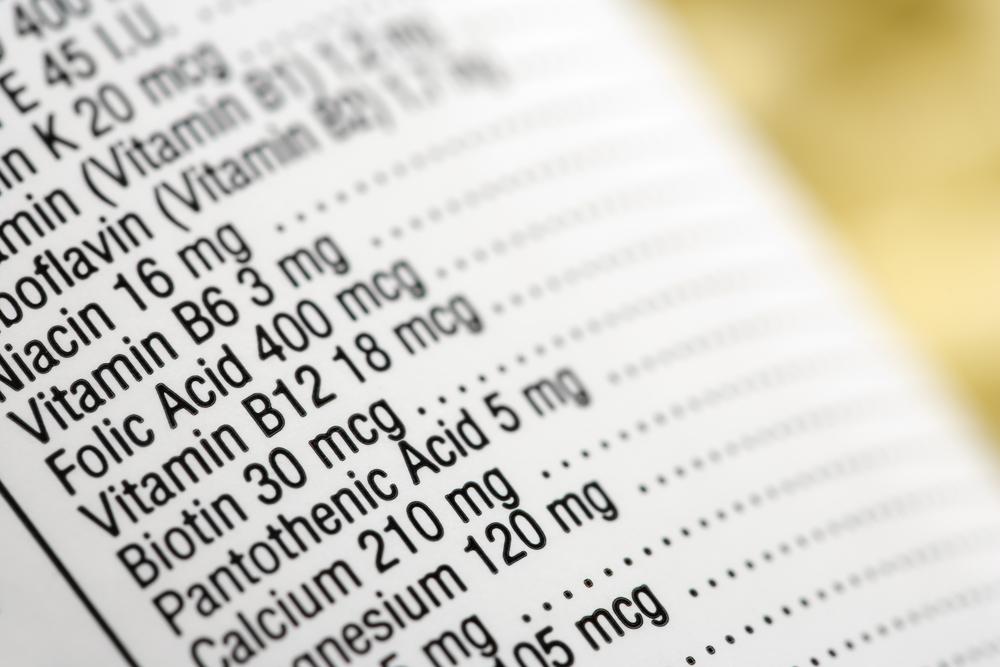Have you ever wondered if supplements could benefit your mental health? We got curious and we decided to ask Dr. Hanisah Azhari, an experienced pharmacist, owner of MyAntidote Pharmacy, and a Professor at Universiti Kebangsaan Malaysia (UKM) about the link between supplements and mental health.
Here are some fruitful insights from Dr. Hanisah.
Can supplements significantly impact one’s mental health condition? If so, in what areas?
Dr. Hanisah Azhari: Supplements can be an important part of treatment for mental health patients, as they can help to address nutritional deficiencies that may contribute to or worsen mental health symptoms. Some specific reasons why supplements may be important for mental health patients include:
CORRECTING NUTRITIONAL DEFICIENCIES: As mentioned earlier, some mental health symptoms can be caused or worsened by nutritional deficiencies. For example, low levels of vitamin D have been linked to depression and anxiety, and low levels of omega-3 fatty acids have been linked to mood disorders. Supplementing these nutrients can help to correct deficiencies and improve symptoms.
ENHANCING TREATMENT RESPONSE: Supplements may also improve the effectiveness of other treatments for mental health, such as medication or therapy. For example, some research suggests that omega-3 supplements may improve the effectiveness of the antidepressant medication.
REDUCING SIDE EFFECTS: Some supplements may help to reduce the side effects of medication used to treat mental health conditions. For example, some studies suggest that the supplement N- acetylcysteine (NAC) may reduce the risk of developing movement disorders associated with antipsychotic medication.
It is important to note that while supplements can be helpful for some mental health patients, they should be used under the guidance of a healthcare professional.
In some cases, high doses of certain supplements may be harmful, and they may interact with other medications or health conditions. Therefore, it is crucial for patients to work with their healthcare team to determine which supplements are safe and appropriate for their specific needs.

It is important to note that while supplements can be helpful for some mental health patients, they should be used under the guidance of a healthcare professional.
Could you give a few examples of supplements that can help with the management of specific types of mental health conditions?
Dr. Hanisah Azhari: Supplementing with specific vitamins or supplements can support in managing several types of mental illness. Examples as below:

- DEPRESSION: Omega-3 fatty acids, particularly EPA and DHA, have been shown to have a positive effect on depression symptoms. Vitamin D and B vitamins, such as folate and B12, have also been linked to depression.
- ANXIETY: The amino acid L-theanine, found in green tea, may help to reduce symptoms of anxiety. Additionally, magnesium supplements may help to reduce anxiety symptoms.
- SCHIZOPHRENIA: The antioxidant N-acetylcysteine (NAC) may help to improve symptoms of schizophrenia, particularly negative symptoms such as apathy and social withdrawal.

- ATTENTION DEFICIT HYPERACTIVITY DISORDER (ADHD): Omega-3 supplements may help to improve attention and reduce hyperactivity in children with ADHD. Additionally, zinc and iron supplements may help to improve symptoms of ADHD in some individuals.

- BIPOLAR DISORDER: Omega-3 supplements may help to reduce symptoms of bipolar disorder, particularly manic symptoms.
- It is important to note that the use of supplements for mental health conditions should always be discussed with a healthcare professional, as they can help determine the most appropriate and effective course of treatment for an individual’s specific needs.
If an individual has been prescribed medications to help with a mental illness, can the person consume supplements as well?
Dr. Hanisah Azhari: Yes of course, as long as the supplements do not interfere with their prescribed medication. In addition, the right and safe dosage is also important to make sure there are no harmful effects. However, it is extremely important to let the health professional know which supplements you are taking and the dosage. Your healthcare professional can help to determine if the supplements are safe for you.
Can supplements replace the medication for the treatment of mental illness?
Dr. Hanisah Azhari: I believe not. Supplements should not be used as a replacement for medication in treating mental illness. While supplements may help manage some symptoms, evidence-based treatments like medication and psychotherapy have been clinically proven to effectively treat mental health conditions. Medications are often prescribed to address imbalances in brain chemistry that contribute to symptoms and have undergone extensive research to demonstrate their effectiveness.

What are some of the elements people should consider before purchasing supplements?
Dr. Hanisah Azhari:
- QUALITY: Choose supplements from reputable brands that use high-quality ingredients and have a good manufacturing process.

- INGREDIENTS: Read the label carefully to ensure that the supplement contains the specific ingredient(s) that you are looking for and that the dosage is appropriate.
- INTERACTIONS: Talk to a healthcare professional before taking a new supplement, especially if you are taking medication or have a medical condition, to ensure that there are no potential interactions or side effects.
- RESEARCH: Look for supplements that have been researched in clinical studies and have demonstrated effectiveness for the specific condition or symptom you are trying to address.

- SAFETY: Choose supplements that have been tested for safety and have not been associated with harmful side effects.
- DOSAGE: Make sure to follow the recommended dosage instructions carefully, and do not exceed the maximum daily dose unless directed to do so by a healthcare professional.
Why is it important for people to consult a healthcare professional before consuming supplements to manage their mental health?
Dr. Hanisah Azhari: It is important for people to consult a healthcare professional before taking supplements to manage their mental health because supplements can interact with other medications or supplements, and may not be effective or safe for the individual. Consulting a healthcare professional can ensure that the supplement is appropriate, and provide guidance on dosage and timing. Additionally, a healthcare professional can provide a comprehensive treatment plan that includes evidence-based treatments and may incorporate supplements to enhance their effectiveness.
Do nutritional deficiencies affect our mental health? If so, how?
Dr. Hanisah Azhari: Deficiencies in specific nutrition are associated with several types of mental illness. Here are some examples:

VITAMIN B12 DEFICIENCY: This can lead to depression, confusion, and even psychosis in severe cases.
VITAMIN D DEFICIENCY: This can be linked to depression, anxiety, and other mood disorders.
IRON DEFICIENCY: This can cause fatigue, irritability, and even depression.
OMEGA-3 FATTY ACID DEFICIENCY: This can lead to mood swings and depression.
MAGNESIUM DEFICIENCY: This can be associated with anxiety, depression, and even schizophrenia.
Are there any supplements that can help with mood-boosting?
Dr. Hanisah Azhari: Yes, there are several supplements that can help boost mood. Some of these include:
- OMEGA-3 FATTY ACIDS: These are found in fish oil and have been shown to help reduce symptoms of depression.

- VITAMIN D: Low levels of vitamin D have been associated with depression, so supplementation may help improve mood.
- B VITAMINS: B vitamins play a role in the production of neurotransmitters that affect mood, so taking a B-complex supplement may help boost mood.
- SAFFRON: This spice has been shown to be effective in reducing symptoms of depression.

- ASHWAGANDHA: Helps reduce stress, anxiety and reduce symptoms of depression.
- MACA: Some animal studies have suggested that maca may reduce symptoms of depression, possibly by increasing levels of neurotransmitters like serotonin and dopamine. It may also help improve energy and stamina levels, which can help reduce fatigue and improve mood.

Can an individual sustain their mental health with the help of supplements?
Dr. Hanisah Azhari: Supplements may have some benefits in supporting mental health, but they should not be solely relied upon to sustain good mental health. Maintaining a healthy and balanced diet, regular exercise, adequate sleep, stress management, and social support are all important for good mental health. A holistic approach that includes healthy lifestyle habits and evidence-based treatments is necessary for maintaining optimal mental health.

This piece was an interview with a White Coat 360 pharmacist.














